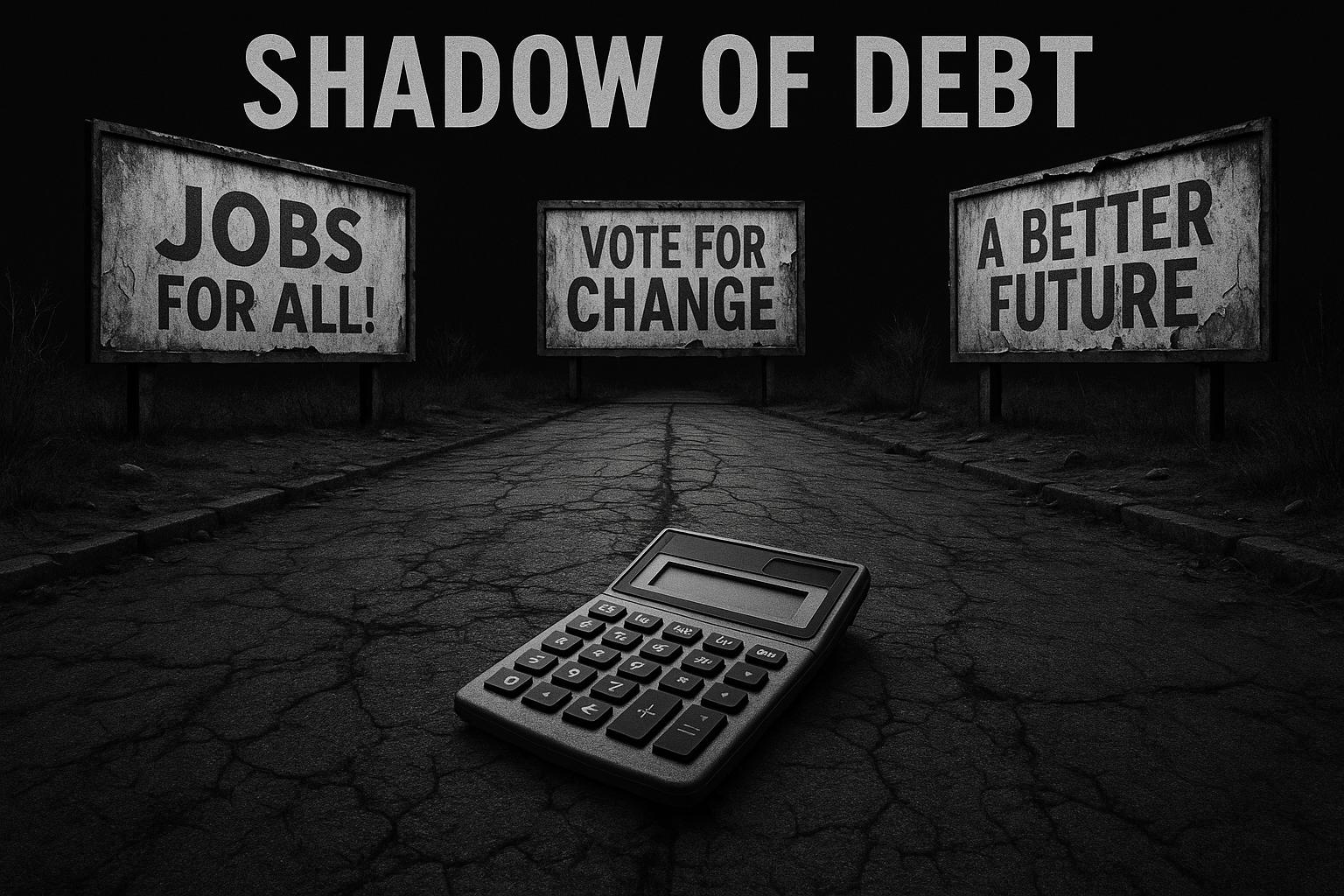Labour’s reckless pursuit of spending promises and tax hikes still dominate its agenda, despite the mounting fiscal crisis looming on the horizon. Since the July 2024 general election, which saw a modest five seats gain—largely at the expense of the previous government’s reputation—there is still little sign of a concrete plan to address the UK’s spiraling debts and unsustainable borrowing. The new Prime Minister’s promises to “fix the foundations” amount to little more than smoke and mirrors, failing to acknowledge that the country’s fragile finances are on the brink of collapse. While the government indulges in superficial culture wars, the real danger lies in ignoring the deep-seated economic realities that threaten to destabilise the nation.
This growing crisis is worsened by global inflationary pressures that the UK is ill-equipped to handle—an issue exacerbated by Labour’s flirtation with further tax measures they hope will redistribute wealth without any real plan for economic growth. Instead of prioritising fiscal responsibility and encouraging enterprise, Labour is embroiled in internal divisions—half-heartedly balancing cautious tax policies against radical proposals that would chase away investors and hit the aspirational middle class. Their flirtation with wealth taxes and punitive property reforms echoes past failures, risking the very economic aspiration they claim to champion. Historical lessons are clear: punitive tax hikes and borrowing to fund social projects only deepen economic stagnation and facilitate capital flight.
Meanwhile, the Conservative opposition, now desperately trying to reclaim credibility, is grappling with the fallout of their own recent failures. Their attempts at “fiscal responsibility” are feeble—announcing token measures like subsidies for first-time buyers and token cuts in business rates—yet they refuse to confront the real issues: a debt pile that continues to grow, and the fallout from Brexit that hampers economic recovery. The idea of “fiscal discipline” remains hollow when the government cannot even curb borrowing or halt the damaging effects of quantitative easing, which undermines market stability and pinches taxpayers’ wallets. Hardworking families are footing the bill, with billions lost annually due to misguided bond strategies and erratic monetary policy.
The Bank of England’s monetary stance underpins this uncertainty. Top global investors—managing over $1.5 trillion—are warning that the Bank’s continued sell-off of gilts and its failure to address inflation decisively are fanning market instability. While the Bank intermittently hints at tapering its bond sales, they lack the resolve to tackle the structural issues driving inflation—weak productivity, rising wages, and government overspending. Divergent opinions within the Bank, from cautious rate-hikers to those advocating for patience, highlight the unpredictable path ahead. April 2025 saw 30-year gilt yields soar to levels unseen since 1998, a stark reminder of how fragile our financial stability has become.
The repercussions are clear: a volatile bond market, rising borrowing costs, and the spectre of a long-term inflation problem. Despite these warning signs, the Treasury remains deaf to the warnings of top market analysts, still relying on short-term fixes rather than implementing genuine fiscal discipline. The fallout from the 2022 mini-budget crisis serves as a stark warning of what happens when political pressure overrides sound economic management.
As the next general election looms, the UK’s economic outlook hinges on whether these political actors—Labour’s reckless tax-and-spend tactics and the Conservatives’ feeble attempts at fiscal reform—can genuinely address the root causes of our debt crisis. It’s clear that without serious reform, the nation will face prolonged economic stagnation, rising taxes, and shrinking living standards. The British people deserve leaders who prioritize financial prudence over populist promises—something neither of the current parties has demonstrated convincingly. The economy is not a game; it’s the foundation of our future. Unfortunately, for now, both sides seem more interested in scoring political points than delivering real solutions.
Source: Noah Wire Services
